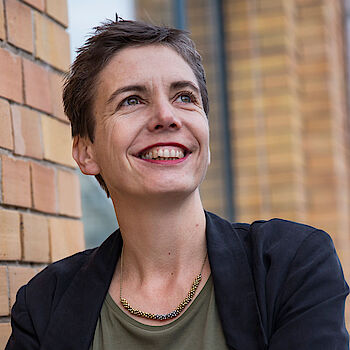Prof. Dr. Juliane Siegeris is a new member of the Executive Board of the Einstein Center Digital Future (ECDF). The professor of software engineering at HTW Berlin is the new representative of the partner universities. She succeeds Prof. Dr. Alexander Löser of the Beuth University of Applied Sciences Berlin.
What fascinates you about the ECDF and why do you want to get involved there?
The ECDF is a research association that aims to develop Berlin as a location for science and research into a leading position in the field of digitization. It offers the opportunity to support people who are doing research on current and socially relevant topics in the field of digitization. As a member of the board, I would like to actively participate in the discussion in order to get people and topics worthy of support involved and thus help to reflect the diversity of social reality in the Berlin university landscape. As a representative of the universities of applied sciences I will try to make their competences visible and support them. One of the strengths of the universities of applied sciences is the applied nature of their research and their contact with companies. Berlin is rich in digital start-ups and innovative small and medium-sized enterprises. I will bring in my personal network to tap the strengths of the universities of applied sciences for the further development and expansion of the ECDF.
The ECDF attaches great importance to interdisciplinary cooperation between the professors. What opportunities and challenges do you see for research in the field of digitisation in particular?
Research in the field of digitisation always means research across disciplines. The excellence of the researchers is measured by the amount of high-quality publications they produce. For researchers in interdisciplinary border areas, this means that they have to work on their acceptance in different communities. Through the ECDF, a Berlin-wide network of scientists is being created who work together across university boundaries and disciplines. This diversity of perspectives holds great potential for joint research, but also requires mutual understanding and approaching each other at eye level.
You are spokesperson of the Scientific Advisory Board of the Berlin university programme "DiGiTal - Digitisation: Design and Transformation" for women scientists and artists with which the ECDF already cooperates. What other synergies could be created?
Both, the ECDF and the DiGiTal programme promote excellent research in the context of digitisation. While up to 50 new professorships will be established through the ECDF, the program Digital supports female scientists and artists on their way to professorship. I see synergies above all in the stronger networking of those involved, since joint research can improve individual career paths as well as the visibility of research results.

